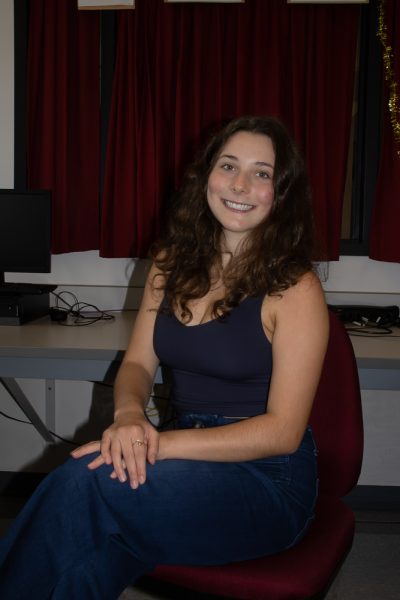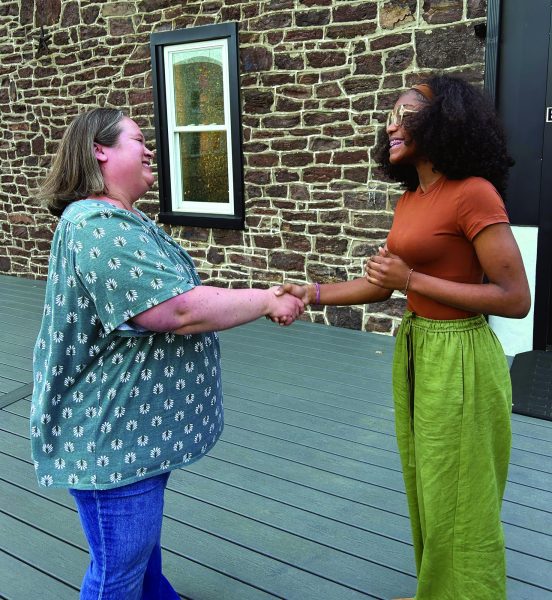Schools ban various books locally, across the country
Due to themes of racial identity and sexual orientation, some districts are banning books ranging from children’s books to classics. Pennridge School District is one them.
By deeming certain books harmful to the safety and wellbeing of students, schools locally and around the country have banned books relating to racism and the LGBTQ+ community.
The curriculum that English teacher Sue Newlin teaches to her ninth-grade students includes two books that have been banned in parts of the country: “Of Mice and Men” by John Steinbeck (1937) and “To Kill a Mockingbird” by Harper Lee (1960).
Both books have been banned due to themes of racism and the use of the n-word.
Newlin said that the n-word is used by the white character(s) in reference to the Black character(s) to “show how other characters oppress them by using that word.”
“It’s a piece of our history that I think is important that students see, that adults see, to understand that it’s there and we can always be moving forward,” Newlin said.
According to Newlin, reading books regarding social issues with characters to connect to and sympathize with “teach our history in a very engaging way.”
“I can talk about Jim Crow until I’m blue in the face, but until you experience it through Tom Robinson and Calpurnia,” Newlin said, “I think you’ll get a much better understanding of what it’s like.”
According to The New York Times, The 1619 Project created by Nikole Hannah-Jones (2019), which explains the lasting impacts of U.S. slavery, such as in modern-day constitutions and the continuation of anti-Black racism in the U.S., has been targeted for being banned in U.S. schools because of its discussion of how racism intertwines with U.S. history.
Many people are frustrated with the decision to ban “The 1619 Project,” because it can potentially shield important history that students should be educated about.
“I think society just doesn’t want to picture ourselves as being the bad guy,” Book Club member Maya Depolo said. “That’s what schools are trying to ban and I don’t think that’s right because we should learn from our mistakes as a country.”
Other frequently banned books in the U.S. are selected because they contain themes of sexual identity. For instance, Pennridge School District recently banned books relating to gender identity and sexual orientation in their elementary school libraries.
These books are now only available if requested by a parent or guardian. The children’s book “Heather Has Two Mommies” by Lesléa Newman (1989) is now a banned book at Pennridge elementary schools.
“Heather has Two Mommies,” tells the story of Heather and her two mothers that are in a lesbian relationship.
Pennridge High School junior Ashley Gilton said that this is a “step in the wrong direction” for her school district, as these books can be “important resources” for students.
“As [students] get older,” Gilton said, “and they’re trying to figure out who they are, like their gender and sexual expression, they need to have important resources where they can go and figure this out.”
Pennridge High School sophomore Grace Farrel said that this ban on books relating to the LGBTQ+ community will “definitely continue to promote the barrier that is seen between LGBTQ+ students and straight students.”
“Since elementary school, there are the kids that people deemed weird,” Farrel said. “When they grow older, if they find out that they are LGBTQ+, they are more separated because the kids that deemed them weird think [that identifying with that community is] weird too.”
Many also worry about how book bans regarding books with LGBTQ+ themes will affect younger generations.
Depolo said that teaching children about the LGBTQ+ community at a young age is important.
“I think it just teaches everyone to be inclusive and I feel like it helps you to learn about yourself as well,” Depolo said.
According to Book Club member Nora Richardson, the lack of education about gender identity and sexual orientation “paints [the LGBTQ+ community] in a negative connotation and it makes life more difficult for people [in the LGBTQ+ community] and singles them out.”
“I feel that ignorance is one of the worst factors in the prejudice that occurs today in the world and I think that censorship just leads to more ignorance,” Richardson said.
According to Education Week, to combat censorship in schools, the College Board released a statement that if information regarded in Advanced Placement classes is censored by schools, then students in those Advanced Placement classes may lose the college credit that they would have otherwise received.






